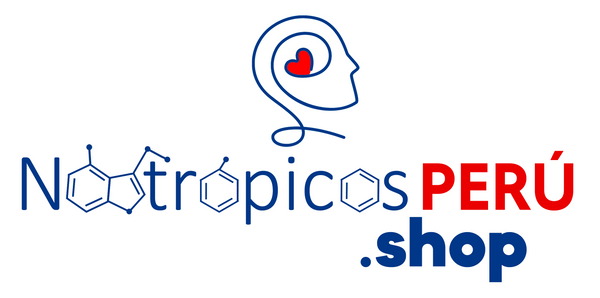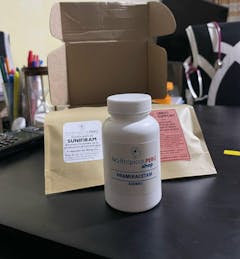¿Qué es la Apigenina?
La Apigenina es un flavonoide natural con estructura molecular compleja, derivado de fuentes vegetales como apio, manzanilla y perejil. Caracterizado por su versatilidad molecular, interactúa con múltiples sistemas fisiológicos, ofreciendo beneficios integrales que trascienden la función tradicional de compuestos nutricionales.
¿Cómo funciona en el organismo?
Actúa modulando receptores nucleares y vías de señalización celular, interviniendo en procesos fundamentales como inflamación, estrés oxidativo y función inmunológica. Su mecanismo molecular permite una interacción precisa con sistemas biológicos, generando respuestas metabólicas complejas.
¿Cuáles son sus beneficios principales?
Ofrece beneficios multidimensionales que incluyen modulación inmunológica, neuroprotección, regulación hormonal, potencial anticancerígeno y optimización metabólica. Contribuye a mantener el equilibrio fisiológico mediante mecanismos moleculares sofisticados.
¿Es seguro su consumo a largo plazo?
Múltiples estudios científicos avalan su seguridad cuando se consume bajo protocolos adecuados. Su perfil de tolerabilidad es alto, con mínimos efectos secundarios reportados. No obstante, se recomienda mantener una dosificación controlada.
¿Puede ayudar en la prevención de enfermedades?
Presenta propiedades preventivas significativas, contribuyendo a reducir riesgos de enfermedades cardiovasculares, neurodegenerativas y procesos inflamatorios crónicos. Su capacidad moduladora molecular genera un ambiente fisiológico protector.
¿Cuál es su impacto en el sistema inmunológico?
Optimiza la respuesta inmunológica mediante la modulación de citoquinas, reducción de marcadores inflamatorios y fortalecimiento de mecanismos de defensa celular. Genera un equilibrio inmune integral.
¿Afecta la función hormonal?
Modula indirectamente el eje neuroendocrino, contribuyendo al equilibrio hormonal y optimizando la función de receptores celulares. Impacta positivamente en sistemas hormonales asociados al estrés y metabolismo.
¿Es efectivo para deportistas?
Representa una herramienta estratégica para optimizar rendimiento, reducir inflamación post-ejercicio y mejorar procesos de recuperación metabólica. Contribuye a la eficiencia energética celular.
¿Puede reducir el riesgo de cáncer?
Investigaciones preliminares sugieren potencial anticancerígeno mediante inhibición de proliferación celular y inducción de apoptosis. Modula vías de señalización que pueden prevenir la progresión tumoral.
¿Cómo impacta en la salud cardiovascular?
Contribuye a reducir marcadores inflamatorios, optimizar perfil lipídico y mejorar función endotelial. Protege contra oxidación de lipoproteínas y fortalece sistema vascular.
¿Tiene efectos neuroprotectores?
Desarrolla mecanismos de protección neuronal, reduciendo estrés oxidativo y previniendo degeneración de estructuras cerebrales. Incrementa plasticidad neuronal y mantiene integridad sináptica.
¿Es útil para personas mayores?
Especialmente beneficioso en poblaciones de edad avanzada, contribuyendo a mantener función cognitiva, reducir inflamación sistémica y optimizar procesos metabólicos.
¿Puede mejorar la función cognitiva?
Optimiza funciones neurológicas superiores, mejorando memoria, concentración y velocidad de procesamiento mental. Contribuye a mantener vitalidad cognitiva.
¿Cuál es su mecanismo antioxidante?
Neutraliza radicales libres, estabiliza membranas celulares y reduce estrés oxidativo a nivel mitocondrial. Genera protección molecular integral contra daño oxidativo.
¿Influye en el control de peso?
Modula procesos metabólicos, mejorando sensibilidad insulínica y contribuyendo al equilibrio energético. Optimiza función mitocondrial y metabolismo lipídico.
¿Tiene efectos antiinflamatorios?
Inhibe vías proinflamatorias, reduce producción de citoquinas y genera ambiente molecular que previene inflamación crónica. Contribuye al equilibrio inmunológico.
¿Es diferente de otros flavonoides?
Se distingue por su estructura molecular única y capacidad de interacción específica con múltiples sistemas fisiológicos. Ofrece beneficios más integrales que flavonoides convencionales.
¿Puede ayudar en estrés?
Modula respuesta neurológica al estrés, regulando neurotransmisores y optimizando función neuroendocrina. Contribuye a mejorar resiliencia molecular.
¿Tiene efectos en la función sexual?
Contribuye indirectamente mediante modulación hormonal y mejora de función vascular. Optimiza equilibrio neuroendocrino relacionado con función reproductiva.
¿Es útil para personas con enfermedades autoinmunes?
Requiere evaluación individualizada. Presenta potencial modulador inmunológico que puede complementar tratamientos convencionales.
¿Puede ayudar en la salud reproductiva?
La Apigenina contribuye potencialmente a la salud reproductiva mediante modulación hormonal y regulación de procesos endocrinos. Puede optimizar la función reproductiva a través de su interacción molecular con sistemas hormonales fundamentales.
¿Tiene efectos en la fertilidad?
Presenta propiedades que pueden influir positivamente en la función reproductiva, modulando parámetros hormonales y contribuyendo al equilibrio endocrino necesario para procesos de fertilidad.
¿Es útil para personas con estrés crónico?
Modula la respuesta neurológica al estrés, regulando neurotransmisores y optimizando la función neuroendocrina. Contribuye a mejorar la resiliencia molecular frente a estímulos estresantes.
¿Puede mejorar la salud de la piel?
Ofrece beneficios potenciales para la salud cutánea mediante su acción antioxidante, reducción de inflamación y optimización de procesos metabólicos celulares.
¿Tiene impacto en la función hepática?
Contribuye a la protección hepatocelular mediante mecanismos antioxidantes y modulación de procesos inflamatorios. Puede optimizar la función metabólica del hígado.
¿Es efectivo para personas con problemas respiratorios?
Presenta propiedades que pueden modular la respuesta inflamatoria en sistemas respiratorios, potencialmente contribuyendo a la reducción de procesos inflamatorios bronquiales.
¿Puede ayudar en la salud ocular?
Ofrece beneficios potenciales para la salud ocular mediante su acción antioxidante y capacidad de reducir procesos inflamatorios a nivel celular.
¿Tiene efectos en la salud dental?
Puede contribuir a la salud dental mediante sus propiedades antiinflamatorias y capacidad de modular procesos microbiológicos orales.
¿Es útil para personas con problemas circulatorios?
Contribuye a la salud cardiovascular mediante la optimización de la función endotelial y reducción de marcadores inflamatorios vasculares.
¿Puede mejorar la salud ósea?
Presenta potencial para modular procesos de formación y resorción ósea, contribuyendo al mantenimiento de la densidad mineral ósea.




















